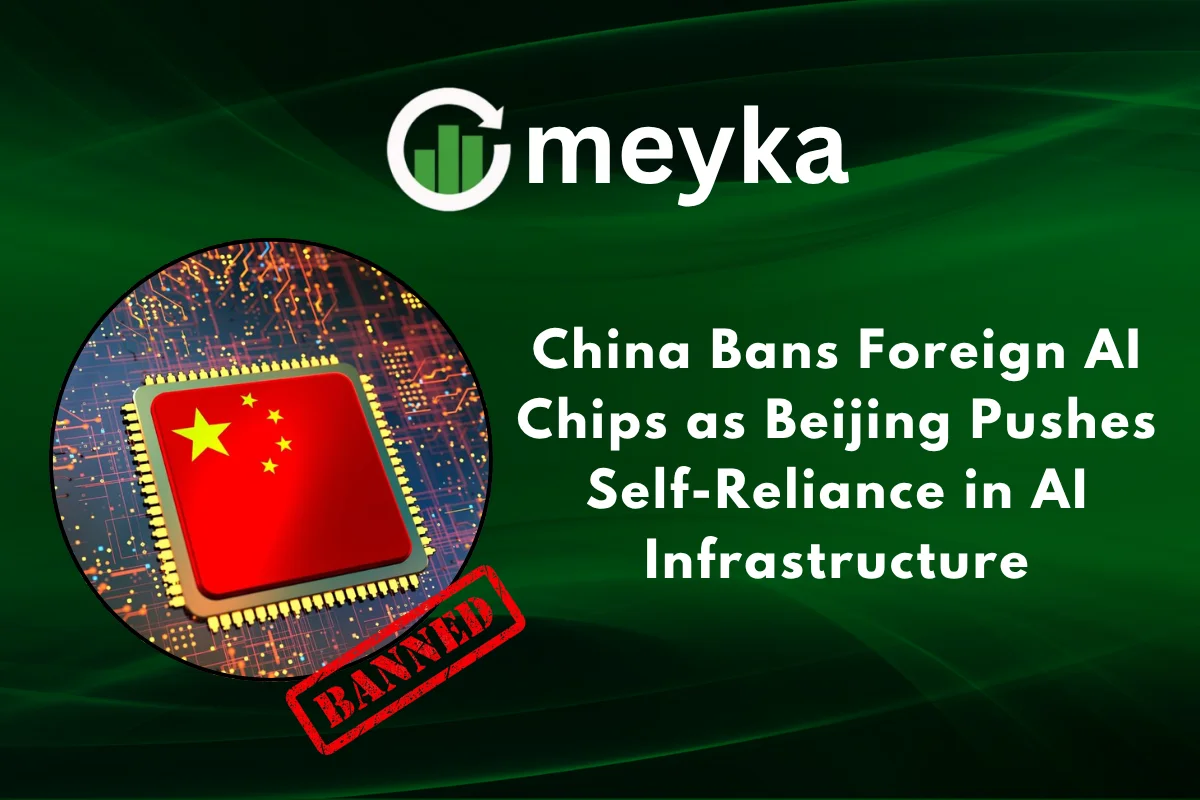China Bans Foreign AI Chips as Beijing Pushes Self-Reliance in AI Infrastructure
China has announced a major policy move that is set to reshape the global technology and semiconductor landscape. In a bold step toward technological independence, China Bans Foriegn AI Chips from use in government systems, state-owned enterprises, and key infrastructure sectors. The decision is part of Beijing’s long-term strategy to reduce dependence on Western technology and build a fully self-reliant AI ecosystem.
Continue Reading on Meyka
This article is available in full on our main platform. Get access to complete analysis, stock insights, and more.
Read Full Article →





